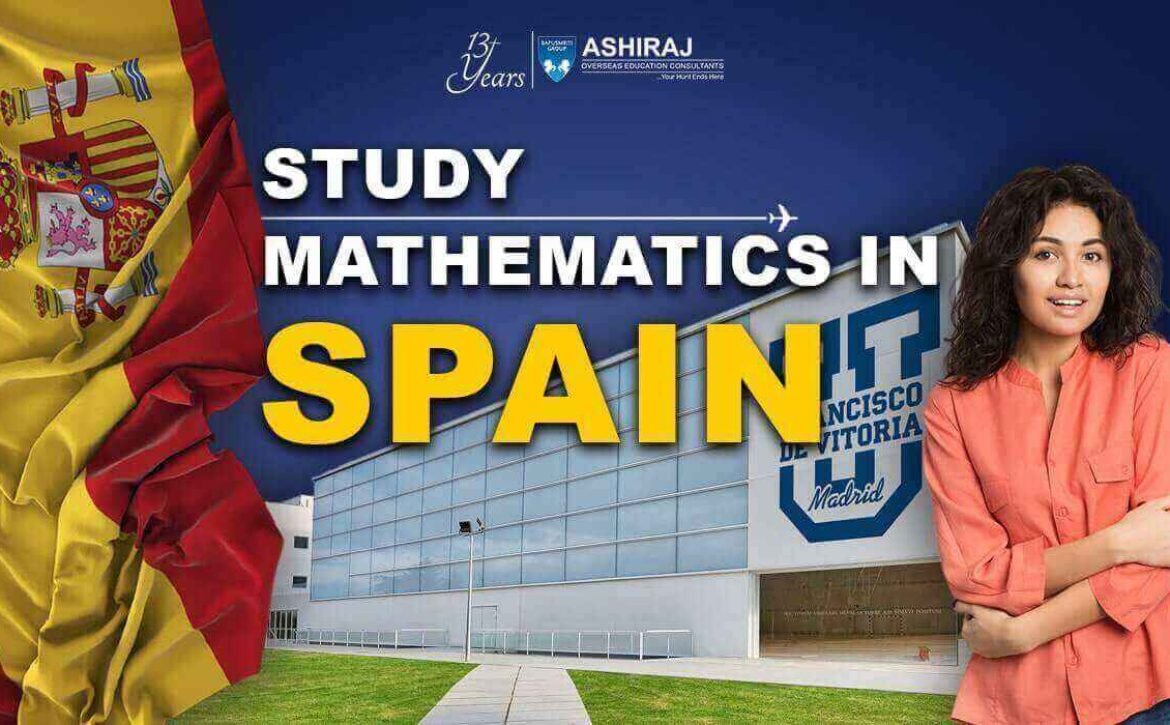
Mathematics in Spain
Mathematics in Spain has a rich history deeply intertwined with the country’s cultural and intellectual heritage. From ancient times to the modern era, Spain has been home to numerous mathematicians who have made significant contributions to various branches of mathematics. The legacy of Spanish mathematicians spans diverse fields including algebra, geometry, calculus, and number theory. During the medieval period, Spanish scholars played a pivotal role in preserving and transmitting mathematical knowledge from Arabic and Greek sources, contributing to the flourishing of mathematical learning in Europe.
In contemporary times, Spain continues to foster a vibrant mathematical community with renowned institutions and research centers dedicated to advancing mathematical knowledge. The country hosts international conferences and seminars, attracting mathematicians from around the world to exchange ideas and collaborate on cutting-edge research. With a strong tradition of mathematical education and research, Mathematics in Spain remains an integral part of the nation’s intellectual landscape, shaping not only academic pursuits but also contributing to technological innovation and societal progress.
Why to Study Mathematics in Spain?
- Rich Historical Legacy: Spain boasts a rich historical legacy in mathematics, with contributions from ancient to modern times. Studying mathematics in Spain offers a chance to delve into this rich heritage and explore the works of renowned mathematicians.
- Vibrant Mathematical Community: Spain hosts a vibrant mathematical community with esteemed institutions and research centers. Students have ample opportunities to engage with experts, attend conferences, and participate in research projects.
- Cutting-edge Research: Spanning various fields like algebra, geometry, and calculus, mathematics research in Spain is at the forefront of innovation. Studying mathematics here provides access to cutting-edge research opportunities and collaboration with leading experts.
- Quality Education: Spanish universities offer high-quality education in mathematics, with rigorous curriculum and experienced faculty members. Students receive comprehensive training that prepares them for careers in academia, industry, or research.
- International Exposure: With its global connections, studying mathematics in Spain offers students international exposure and networking opportunities. They can interact with peers from diverse backgrounds and gain a global perspective on mathematical concepts and applications.
- Career Opportunities: A degree in mathematics from Spain opens up diverse career opportunities, from academia to finance, technology, and beyond. Employers value the analytical and problem-solving skills gained through mathematics education, making graduates highly sought after in various industries.
In conclusion, studying Mathematics in Spain provides a unique opportunity to immerse oneself in a rich historical tradition, engage with a vibrant community of scholars, and access cutting-edge research opportunities, ultimately paving the way for a successful and rewarding career.
Top Universities to Study Mathematics in Spain
University | QS World University Ranking 2023 | Type of University | Average Annual Fees | Programs Offered |
University of Barcelona | 101-150 | Public | €1,000 – €3,000 | Bachelor’s, Master’s, Ph.D. in Mathematics |
Autonomous University of Madrid | 151-200 | Public | €1,000 – €3,000 | Bachelor’s, Master’s, Ph.D. in Mathematics |
Complutense University of Madrid | 201-250 | Public | €1,000 – €3,000 | Bachelor’s, Master’s, Ph.D. in Mathematics |
University of Valencia | 301-350 | Public | €1,000 – €3,000 | Bachelor’s, Master’s, Ph.D. in Mathematics |
Polytechnic University of Catalonia | 301-350 | Public | €1,000 – €3,000 | Bachelor’s, Master’s, Ph.D. in Mathematics |
Studying Mathematics in Spain offers a plethora of options, with several top universities renowned for their academic excellence and research contributions. The table highlights the top 5 universities in Spain for Mathematics based on the QS World University Rankings 2023, showcasing their rankings, university type, average annual fees, and programs offered. These universities provide Bachelor’s, Master’s, and Ph.D. programs in Mathematics, allowing students to pursue their academic and research interests in this field. With affordable tuition fees and a wide range of programs, students have the opportunity to receive quality education and immerse themselves in the vibrant mathematical community in Spain. Whether aspiring mathematicians or researchers, these universities offer the necessary resources and support to nurture talent and foster innovation in Mathematics in Spain.
Course Curriculum for Mathematics in Spain
- Foundational Courses: Mathematics in Spain typically begins with foundational courses covering topics such as algebra, calculus, and geometry, providing students with a strong conceptual framework.
- Advanced Topics: As students progress, they delve into advanced topics like differential equations, real analysis, and abstract algebra, gaining deeper insights into mathematical principles and techniques.
- Applied Mathematics: The curriculum often includes courses in applied mathematics, focusing on practical applications in areas such as physics, engineering, and computer science, preparing students for real-world problem-solving.
- Statistics and Probability: Courses in statistics and probability are integral parts of the curriculum, equipping students with essential tools for data analysis and decision-making in various fields.
- Research Opportunities: Universities in Spain offer research opportunities for mathematics students, allowing them to work on independent projects under the guidance of faculty members, fostering critical thinking and analytical skills.
- Interdisciplinary Approach: Mathematics curriculum in Spain often adopts an interdisciplinary approach, integrating mathematics with other disciplines such as economics, biology, and finance, reflecting the diverse applications of mathematical concepts.
- International Perspective: With a focus on internationalization, some courses may incorporate global perspectives, exposing students to mathematical theories and practices from different cultures and regions, enhancing their understanding of Mathematics in Spain within a broader context.
Eligibility Criteria & Admission Requirements for MS in Mathematics in Spain
- Language Proficiency: Applicants are typically required to demonstrate proficiency in English or Spanish through standardized tests such as IELTS or TOEFL. The minimum scores vary depending on the institution and program.
- Standardized Test Scores: Many universities may require applicants to submit scores from standardized tests like GRE or GMAT. The minimum scores vary based on the institution and program requirements.
- Academic Certificates: Applicants are expected to provide academic certificates demonstrating their qualifications, including transcripts and diplomas from previous educational institutions.
- Work Experience: While not always mandatory, some programs may prefer applicants with relevant work experience in the field of mathematics or related areas.
Table: Standardized Test Scores
Test | Minimum Score |
IELTS | 6.5 |
TOEFL | 90 |
GRE | 160 (Quantitative) |
GMAT | 650 |
- Passport & Student Visa: International students must possess a valid passport and obtain a student visa to study Mathematics in Spain. Visa requirements may vary based on the student’s country of origin.
- Financial Documentation: Applicants may need to provide proof of sufficient funds to cover tuition fees and living expenses during their study period in Spain.
- Statement of Purpose: Some programs may require applicants to submit a statement of purpose outlining their academic and career goals, as well as their reasons for choosing Mathematics in Spain for further study.
Documents Required for Studying Mathematics in Spain
- Passport: A valid passport is essential for international students planning to study Mathematics in Spain, serving as proof of identity and nationality.
- Two Letters of Recommendation (LOR): Applicants are typically required to submit two LORs from academic or professional references, highlighting their qualifications and suitability for the program.
- Statement of Purpose (SOP): An SOP is a crucial document that outlines the applicant’s academic background, career goals, and reasons for choosing Mathematics in Spain for further study.
- Curriculum Vitae (CV): A comprehensive CV detailing the applicant’s educational qualifications, work experience, research projects, publications, and any other relevant achievements.
- Official High School Transcripts: Applicants must provide official transcripts of their high school education, showcasing their academic performance and achievements.
- Educational Certificates: Along with transcripts, applicants should submit copies of their educational certificates, including diplomas or degrees earned from previous institutions.
- Work Experience Certificate: If applicable, applicants should provide a work experience certificate demonstrating any relevant professional experience in the field of mathematics or related areas.
- Proof of Financial Resources: International students must demonstrate proof of sufficient financial resources to cover tuition fees, living expenses, and other associated costs while studying Mathematics in Spain.
Ensuring the timely submission of these documents is essential for a smooth application process and admission to Mathematics programs in Spain.
Admission Process for Mathematics in Spain
- Research Universities: Begin by researching universities in Spain offering Mathematics programs, considering factors such as reputation, faculty expertise, and program curriculum.
- Review Requirements: Thoroughly review the admission requirements for each university, including academic qualifications, standardized test scores, language proficiency, and document submission guidelines.
- Prepare Documents: Gather required documents such as passport, educational transcripts, certificates, letters of recommendation (LORs), statement of purpose (SOP), curriculum vitae (CV), and proof of financial resources.
- Standardized Tests: If required, prepare for and take standardized tests such as IELTS or TOEFL for English proficiency, and GRE or GMAT for graduate programs, ensuring you meet minimum score requirements.
- Submit Application: Complete the online application form for your chosen universities, ensuring all required information and documents are accurately provided. Pay attention to application deadlines.
- Await Decision: After submitting your application, await notification from the universities regarding the status of your application. This may take several weeks to months depending on the university’s review process.
- Acceptance and Enrollment: Upon receiving an acceptance letter, follow the instructions provided by the university to secure your spot and enroll in the Mathematics program.
By following these steps meticulously, prospective students can navigate the admission process smoothly and increase their chances of securing admission to Mathematics programs in Spain.
“Education is the most powerful weapon which you can use to change the world.”
Nelson Mandela
Cost of Mathematics Course in Spain
- Tuition Fees: Public universities in Spain generally have lower tuition fees compared to private institutions. For Mathematics programs, tuition fees typically range from €1,000 to €3,000 per year for both undergraduate and graduate studies.
- Living Expenses: The cost of living in Spain varies depending on the city and lifestyle. On average, students should budget around €700 to €1,000 per month to cover accommodation, food, transportation, and other expenses.
- Scholarship Opportunities: Mathematics in Spain offers various scholarships and financial aid options for both domestic and international students. These scholarships can help offset tuition fees and living expenses.
- Part-time Work: International students are permitted to work part-time while studying in Spain. Part-time jobs can provide additional income to cover living expenses, although it’s essential to balance work with academic responsibilities.
- Health Insurance: Health insurance is mandatory for all students studying in Spain. International students may need to purchase private health insurance or enroll in the Spanish public health insurance system, depending on their circumstances.
- Additional Costs: Additional costs may include study materials, transportation, leisure activities, and travel expenses. It’s essential for students to budget accordingly and plan for unforeseen expenses.
Understanding the cost of studying Mathematics in Spain allows prospective students to make informed decisions and plan their finances effectively. By exploring scholarship opportunities and budgeting wisely, students can pursue their academic goals without financial strain.
Scholarships for Mathematics Courses in Spain
Scholarship Name | Amount | Application Deadline | Eligibility Criteria |
Spanish Government Scholarships | Varies | Varies | Open to international students pursuing Mathematics in Spain. Requires academic excellence and financial need. |
Erasmus+ Scholarships | Varies | Varies | Available for undergraduate and graduate students participating in exchange programs with partner institutions. Mathematics students may qualify based on academic performance and program eligibility. |
La Caixa Foundation Scholarships | Varies | Varies | Provides funding for postgraduate studies, including Mathematics, at Spanish universities. Requires academic merit, leadership qualities, and commitment to social responsibility. |
Santander Scholarships | Varies | Varies | Offers financial support to undergraduate and graduate students from certain countries, including Brazil, Chile, and Mexico, to study Mathematics in Spain. Eligibility criteria vary by program. |
University-specific Scholarships | Varies | Varies | Many universities in Spain offer their own scholarships for Mathematics students. Amounts and deadlines vary by institution. Applicants should check with individual universities for details. |
Scholarships play a vital role in supporting students pursuing Mathematics in Spain by providing financial assistance to cover tuition fees, living expenses, and other costs associated with studying abroad. These scholarships offer opportunities for both domestic and international students to pursue their academic aspirations in Mathematics in Spain. It’s essential for prospective applicants to carefully review the eligibility criteria, application deadlines, and requirements for each scholarship opportunity to maximize their chances of success.
Career Opportunities After Mathematics in Spain
Job Profile | Average Salary (EUR) | Description |
Data Analyst | €30,000 – €40,000 | Data analysts use mathematical and statistical techniques to interpret data, analyze trends, and provide insights for business decisions. |
Actuary | €40,000 – €60,000 | Actuaries assess financial risks using mathematical models to help organizations make informed decisions about insurance and pensions. |
Software Developer | €35,000 – €45,000 | Software developers design and develop software applications using mathematical principles and programming languages. |
Financial Analyst | €35,000 – €50,000 | Financial analysts evaluate investment opportunities, analyze financial data, and provide recommendations to individuals and businesses. |
Statistician | €35,000 – €45,000 | Statisticians collect, analyze, and interpret numerical data to solve real-world problems in various fields such as healthcare and economics. |
Mathematics in Spain opens up diverse career opportunities across various industries, from finance and technology to healthcare and government sectors. With a strong foundation in mathematics, graduates can pursue rewarding careers as data analysts, actuaries, software developers, financial analysts, statisticians, and more. These roles offer competitive salaries and opportunities for professional growth, making Mathematics in Spain an attractive choice for those seeking a dynamic and fulfilling career path.
Frequently Asked Questions About Mathematics in Spain
Some of the top universities in Spain offering Mathematics programs include the University of Barcelona, Autonomous University of Madrid, and Complutense University of Madrid.
Yes, there are scholarships available for international students pursuing Mathematics in Spain, such as the Spanish Government Scholarships, Erasmus+ Scholarships, and La Caixa Foundation Scholarships.
The cost of studying Mathematics in Spain varies depending on the university and program. On average, tuition fees range from €1,000 to €3,000 per year for both undergraduate and graduate studies.
Graduates with a Mathematics degree in Spain can pursue various career opportunities, including roles as data analysts, actuaries, software developers, financial analysts, and statisticians, with competitive salaries and opportunities for growth.
While some universities may offer Mathematics programs in English, having proficiency in Spanish can be beneficial for daily life and academic interactions. However, language requirements may vary depending on the institution and program.
Yes, international students are allowed to work part-time while studying in Spain. Part-time jobs can help offset living expenses and provide valuable work experience.
Required documents typically include academic transcripts, standardized test scores (such as IELTS or TOEFL), letters of recommendation, statement of purpose, curriculum vitae, passport, and proof of financial resources.
Yes, many universities in Spain offer research opportunities for Mathematics students, allowing them to work on independent projects under the guidance of faculty members and contribute to cutting-edge research in the field.
The duration of a Mathematics degree in Spain varies depending on the level of study. A bachelor’s degree typically takes three to four years to complete, while a master’s degree may take one to two years. PhD programs typically last three to five years.
Universities in Spain provide various support services for international students, including orientation programs, academic advising, language courses, counseling services, and assistance with visa and residency issues.




